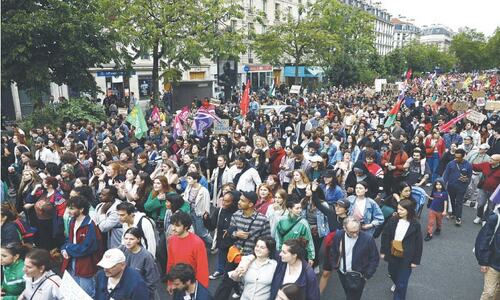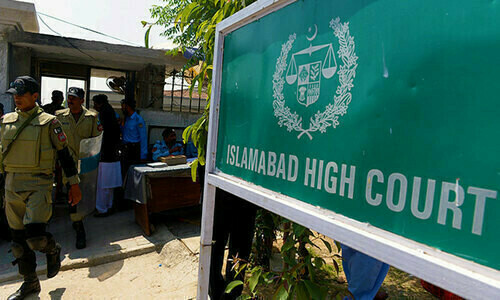MANAMA, Dec 24: The annual summit of Arab monarchs in the Gulf opened in Manama on Monday with a call for closer economic integration and unity in the face of the turmoil which has swept much of the Middle East.
King Hamad of host country Bahrain called for the Gulf Cooperation Council to provide “a security umbrella for its peoples” and urged “economic complementarity” between its six member states.
In his address to GCC counterparts, Saudi Crown Prince Salman bin Abdul Aziz, standing in for King Abdullah who stayed away for health reasons, delivered an appeal for unity.
“We aspire to a strong union with integrated economies, a joint foreign policy and a common defence system,” he said.
Sheikh Sabah al-Ahmad al-Sabah, Kuwait’s amir, called for humanitarian aid for Syrian civilians and urged Iran to reach a peaceful settlement with neighbours, including over three Gulf islands in dispute with the United Arab Emirates (UAE).
He announced a donor conference for civilians caught up in the Syrian conflict to be held at the end of January at the request of the United Nations.
The two-day summit is to focus on strengthening “Gulf unity... especially politically, economically, in defence, security and culturally,” Bahrain’s Foreign Minister Sheikh Khaled bin Ahmed Al-Khalifa said on Sunday.
The meeting is also expected to discuss the conflict roiling Syria and the situation in Yemen.
However, four of the six heads of state will not attend the annual gathering, which takes place in the wake of last year's Arab Spring uprisings which swept several Arab states but not the Gulf monarchies.
The overall gross domestic product in 2011 of the GCC states — Bahrain, Kuwait, Oman, Qatar, the UAE and Saudi Arabia — amounted to 1.37 trillion dollars, a diplomatic source said.
In 2003, they launched a symbolic customs union which has been beset with problems, failing to meet its target date of 2005, with the transition period systematically extended to 2015.
And a monetary union announced in 2009 with the aim of creating a common currency has also failed to materialise, with just four nations — Bahrain, Kuwait, Qatar and Saudi Arabia — signing up to it.
The six will also discuss plans to expand a security treaty they signed in 1994 with the aim of increasing security cooperation in the face of the Arab uprisings, sources said.—AFP













































Dear visitor, the comments section is undergoing an overhaul and will return soon.